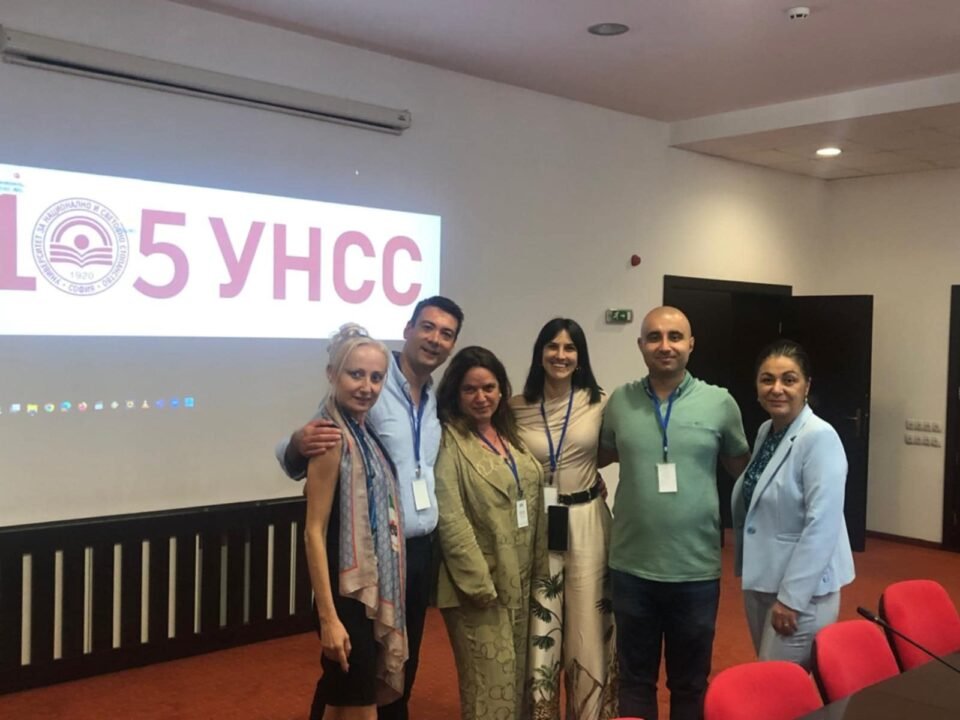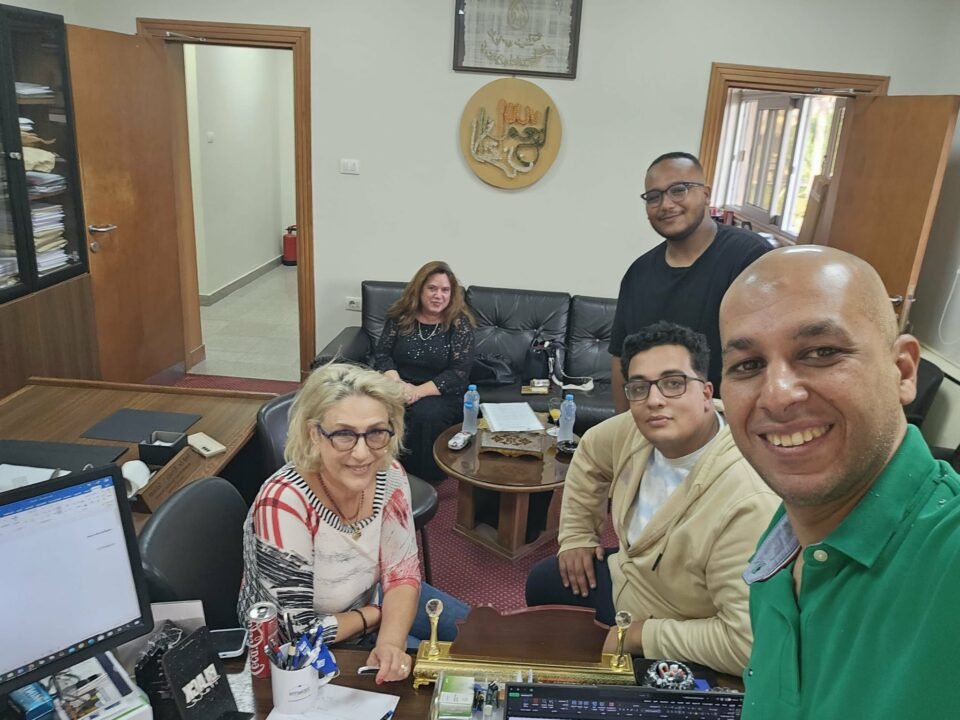Insights from the secondments of Ana Torrado, Phd, and Claudia Jorge from ESPAP, PT, hosted by UNWE in October 2025. The summary of the research activities in which the seconded staff members from ESPAP, PT, participated in the past few days includes the following visits and meetings with IT experts and specialists from academic and non-academic sectors.
UNWE Big Data Center:
The visit to the UNWE Big Data Center on 14 October 2025 provided an in-depth overview of Bulgaria’s digital transformation efforts, highlighting the center’s role as a national hub for big data innovation and applied research. Discussions with Professors Kisimov, Boyanov, Velkova, and Kovacheva revealed the center’s advanced infrastructure (including AI, cloud, and big data systems) used to support digitalization in education, business, and public administration.
Meeting with IT Specialists at UNWE:
The meeting with IT specialists at UNWE on 14 October 2025 offered a comprehensive view of Bulgaria’s digital transformation and cybersecurity landscape from both technical and institutional perspectives. Chief Assist. Dr. Venko Andonov and Assistant. Dr. Ivona Velkova outlined UNWE’s highly digitalized infrastructure, featuring fully online administrative, academic, and research systems, AI-driven exam verification, and advanced virtualization for secure, scalable IT operations.
Meeting at the NSI:
The meeting at the National Statistical Institute (NSI) of Bulgaria on 15 October 2025, with Director Antoaneta Ilkova and Assoc. Prof. Dr. Ekaterina Tosheva provided a detailed overview of Bulgaria’s national statistical system, data governance, and efforts to modernize official statistics in line with European and OECD standards. The NSI, operating under the Council of Ministers, leads the National Statistical System, ensuring methodological consistency, professional independence, and alignment with Eurostat principles. The discussion focused on data democratization—making official data more accessible, understandable, and reusable across all sectors of society through the implementation of the FAIR principles (Findable, Accessible, Interoperable, Reusable).







